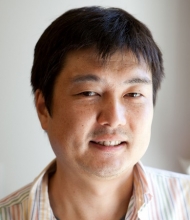ChEMS Seminar: Systematic Construction of Biosynthetic Pathways for Chemical Production

Abstract: Whole-cell biocatalysts have gained increased interest as a method for producing chemicals and fuels renewably due to concerns over future fossil fuel supplies and environmental impacts. Using an intact microorganism as a catalyst offers several advantages over conventional synthesis: 1. high enantioselectivity, 2. high regioselectivity, 3. self-replicating, 4. self-maintaining, and 5. high multistep efficiency from a renewable carbon source. We engineered Escherichia coli to expand natural metabolism and produce several target chemicals specifically and efficiently through systematic comparison of components in each step of the biosynthetic pathway and careful matching of genes, pathway, and chemical toxicity to the chosen host. We expanded this strategy to cyanobacteria. Cyanobacteria offer advantages to microbial chemical production from CO2, including use of non-arable land, high-efficiency photon harvesting, and direct conversion of CO2 without a biomass intermediate.
Biography: Shota Atsumi is an Associate Professor in the Department of Chemistry at the University of California, Davis. He received his Ph.D. from Kyoto University in 2002. He was a postdoctoral researcher at the University of Arizona and the University of California, Los Angeles. He works in the field of synthetic biology and metabolic engineering for chemical production in microorganisms. His research program involves two primary research goals: 1) to develop a platform for valuable chemical production from carbon dioxide using cyanobacteria, and 2) to develop novel biosynthetic pathways to produce chemical compounds which microbes naturally produce in trace amounts or not at all. He received the Hellman Fellowship in 2012 and the NSF CAREER award in 2014.
Share
Upcoming Events
-
CEE Ph.D. Defense Announcement: Release, Transport and Fate of Per- and Polyfluoroalkyl Substances (PFAS) in Urban Watersheds
-
MSE 298 Seminar: Mechano-Electrochemical Phenomena at Ceramic Electrolyte Interfaces
-
MSE 298 Seminar: Innovation In Materials Science - An Industrial R&D Perspective
-
MSE 298 Seminar: Understanding the Impact of Grain Boundary Inclination on Grain Growth Using Modeling and Simulation and Experiments
-
EECS Seminar: Mixed Conductors for Bioelectronics
